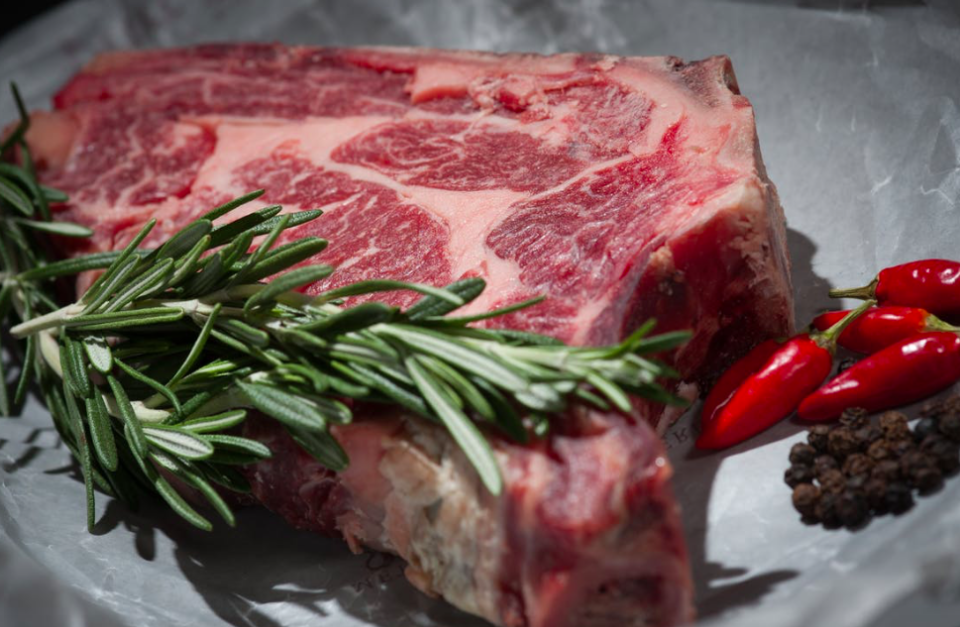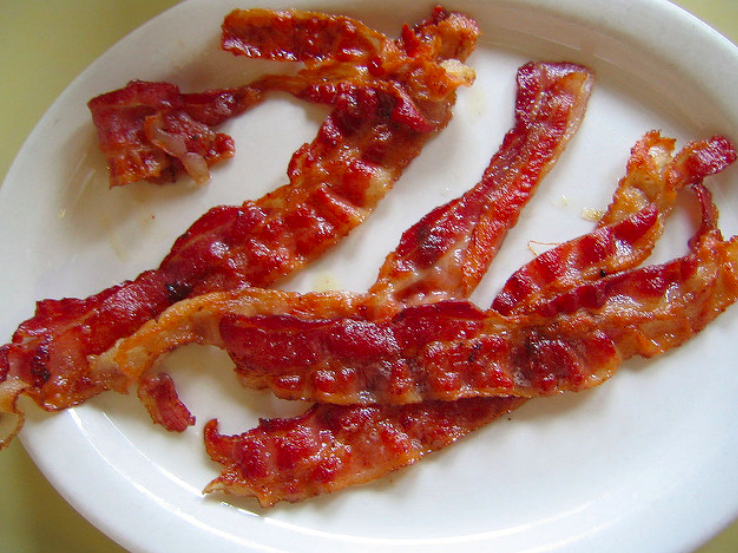Scientists suggest meat tax that would double the price of sausages to tackle heart disease

Researchers have called on the government to introduce a tax on red meat in an attempt to save lives and reduce healthcare costs.
The so-called ‘meat tax’ could prevent almost 6,000 deaths per year in the UK and save the economy more than £700 million in avoided healthcare costs, according to a study.
The research is based on evidence linking consumption of red meat – such as beef, lamb and pork – to an increased risk of heart disease, stroke, diabetes and cancer.
Globally, meat taxes could save an estimated 220,000 lives by 2020 and reduce healthcare costs by £30.7 billion, the study found.
In the UK, the ‘optimal’ tax level increased the cost of red meat by 14% and processed meat by 79%.
This would hit consumers hard in the pockets, with the price of basic breakfast food like sausages doubling.
Scientists set out to calculate the level of health tax needed to make up for healthcare costs associated with eating meat in 149 regions around the world.

They also estimated the likely impact of a meat tax on death rates due to chronic disease.
By 2020, consumption of red and processed meat was likely to cause 2.4 million deaths per year and cost the global economy £219 billion, the study found.
Lead researcher Dr Marco Springmann from the Nuffield Department of Population Health at Oxford University – who last year argued that the world should go vegan – said: ‘The consumption of red and processed meat exceeds recommended levels in most high and middle-income countries.
READ MORE FROM YAHOO NEWS UK
Refrigerated lorry containing 15 children discovered entering UK at Sussex port
The Great War in colour: Reworked WW1 images show grim reality of conflict
‘Deplorable’ Grenfell fraud claimed more than £100,000 by pretending he lived with victims
Drinking just one energy drink ‘can narrow your blood vessels’, experts warn
54% of Brits now back Remain, according to biggest Brexit poll since EU referendum
‘This is having significant impacts not only on personal health, but also on healthcare systems, which are taxpayer-funded in many countries, and on the economy, which is losing its labour force due to ill health and care for family members who fall ill.
‘I hope that governments will consider introducing a health levy on red and processed meat as part of a range of measures to make healthy and sustainable decision-making easier for consumers.
‘A health levy on red and processed meat would not limit choices, but send a powerful signal to consumers and take pressure off our healthcare systems.
“Nobody wants governments to tell people what they can and can’t eat.
‘However, our findings make it clear that the consumption of red and processed meat has a cost, not just to people’s health and to the planet, but also to the healthcare systems and the economy.’
Chief Secretary to the Treasury, Liz Truss, called the proposals ‘claptrap’.
She tweeted: ‘Bacon is an important contributor to my wellbeing. #handsoff’
What claptrap. Bacon is an important contributor to my wellbeing. #handsoff https://t.co/0qC5OWpplr
— Liz Truss (@trussliz) November 7, 2018
The World Health Organisation has classified beef, lamb and pork as carcinogenic when eaten in processed form, and ‘probably’ cancer-causing when consumed unprocessed.
Red meat consumption has also been associated with increased rates of coronary heart disease, stroke and Type 2 diabetes.
The study, published in the journal Public Library of Science ONE, indicated that a health tax could reduce consumption of processed meat such as bacon and sausages by about two portions per week in high-income countries.
The global benefits of a meat tax included a 16% reduction in processed meat consumption, and the prevention of 222,000 deaths from cancer, heart disease, stroke and Type 2 diabetes.

In addition, an estimated 3,800 deaths related to obesity would be prevented, the study found.
For the UK alone, an effective meat tax that offset healthcare costs would prevent 5,920 deaths per year. That would amount to a reduction in the number of deaths attributed to eating meat of 15.6%.
Louise Meincke, from the World Cancer Research Fund, said: ‘Governments need to implement more evidence-informed policies to help make our daily environments healthier so that it is easier for people to make these healthy choices.’
Louise Davies, head of campaigns at the Vegan Society, added: ‘A meat tax need not be particularly controversial given the prevalence of alternatives to meat and their benefits.’

 Yahoo News
Yahoo News 

